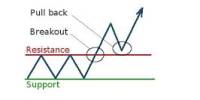Non-Redeemable Preference Shares are a type of preferred stock shares that do not include a callable feature. These shares are referred to as shares that cannot be redeemed during the lifetime of the company. As per the Companies Amendment Act, 1988, no company can issue any preference share which is irredeemable or redeemable after 20 years from the date of the issue. In other words, the issuer of non-callable preferred shares does not have the option to buy back the issued shares (call) at some predetermined price after a certain date. It is likely that these provisions would have a similar consequence for the shareholder. This is especially true when they are a key person within the company. Essentially, the price of a non-callable preferred share equals the dividends paid by the stock, discounted at the cost of the preferred share at perpetuity.
Redeemable preference shares are shares that a company can redeem. Non-redeemable preference shares cannot be redeemed during the lifetime of the company. But it can only be obtained at the time of winding up (liquidation) of assets. Non-redeemable preference shares are therefore generally better for the shareholder. However, it is possible that such shares may be subject to buyback provisions set out in the company’s shareholders agreement.
These shares provide more protection to investors than redeemable preferred shares. The issuer of callable preferred stock has the option to buy back all issued shares if there is an opportunity to issue the shares with a lower dividend rate (e.g., when interest rates fall). This is a plus for the issuer but a risk for the shareholders. Preferred shares with a non-callable provision also typically have a non-convertible provision. This means that the preferred shares cannot be exchanged for the company’s common shares in the future.
These shares cannot be redeemed during the life of the company. Non-Redeemable Preference Shares also known as irredeemable preference shares, are a little different from other types of preference shares. Irredeemable shares do not have any maturity date which makes this instrument very similar to equity except that the dividend of these shares is fixed and they enjoy priority in payment of both dividends and capital over the equity shares. These shares don’t bind companies to repay any amount after a fixed tenure. the company is under no obligations and hence it’s repayment is uncertain, though regular interest payments are received.
















